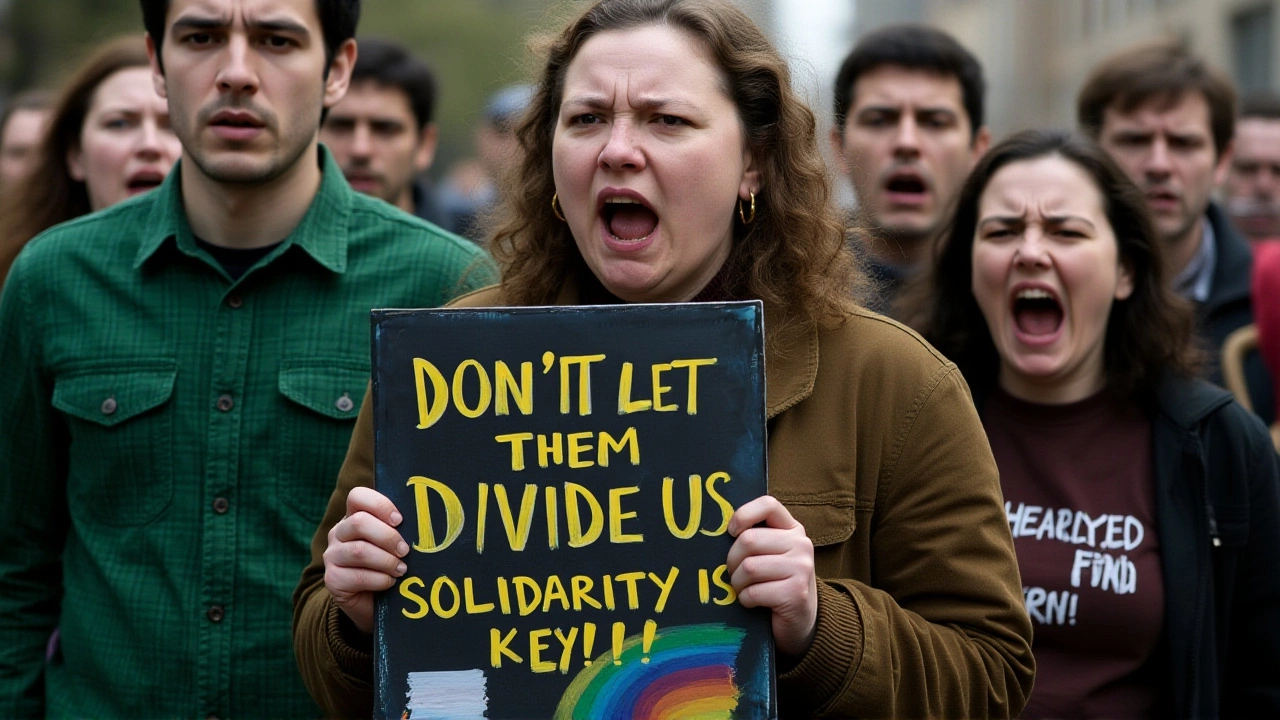
When Good Law Project, the Manchester‑based nonprofit that uses strategic litigation to hold the government to account, filed a judicial review on June 30, 2025, it set its sights on the Equality and Human Rights Commission (EHRC). The challenge arose after the UK Supreme Court clarified the meaning of ‘sex’ under the Equality Act 2010, prompting the EHRC to issue interim guidance that the Good Law Project says falls short of the court’s ruling. The case will be heard in the Administrative Court of England and Wales, but a hearing date has not yet been announced.
Background: Supreme Court Judgment and Its Ripple Effect
The Supreme Court’s decision, handed down on April 30, 2025, focused on whether single‑sex services could exclude transgender individuals under the Equality Act. In a 3‑2 split, the justices concluded that ‘sex’ should be interpreted in line with biological sex for the purpose of certain single‑sex facilities, a reading that shocked many advocacy groups. The ruling forced every public body with a duty to comply with the Act to revisit policies on everything from school toilets to public changing rooms.
Immediately after the judgment, the EHRC – a statutory body created by the Equality Act 2006 and headquartered in Manchester – rushed to publish interim guidance. The aim was to help schools, service providers, and public bodies translate the court’s legal interpretation into day‑to‑day practice.
EHRC Interim Guidance and the Six‑Week Consultation
On May 15, 2025, the EHRC launched a public consultation on a draft Code of Practice covering services, public functions, and associations. The consultation was open for exactly six weeks, closing at 11:59 PM on June 30, 2025. In the announcement, the Commission noted it had received 1,247 submissions – 417 from service providers, 322 from public sector organisations, 289 from advocacy groups, and 219 from individuals.
Key updates to the guidance included:
- June 6: Revised timetable for submitting the final Code of Practice to the UK government for ministerial approval.
- June 24: Added detail on workplace toilet provision under the Workplace (Health, Safety and Welfare) Regulations 1992, expressly clarifying requirements for schools in Scotland.
- April 30: Initial addition of guidance on toilet provision for Scottish schools, responding to the Supreme Court’s focus on ‘sex’.
Crucially, the EHRC said it would not seek views on the legal aspects already settled by the Supreme Court, instead concentrating on practical implementation.
Good Law Project’s Judicial Review
The Good Law Project argues that the interim guidance "fails to properly implement the Supreme Court's judgment regarding the definition of ‘sex’ in the context of single‑sex services and facilities." In a filing to the Administrative Court, the organisation contended that the guidance leaves too much discretion to employers, potentially undermining the legal certainty the Supreme Court aimed to provide.
Supported by women’s rights groups such as For Women Scotland and the Scottish Women's Convention, the Good Law Project’s challenge is less about the cost of litigation – financial figures remain undisclosed – and more about setting a clear precedent that public bodies must follow the court’s interpretation without dilution.
Stakeholder Responses and the Consultation Landscape
Among the 1,247 respondents, a significant portion – roughly 42% – were service providers worried about the operational impact of stricter toilet provision rules. Public sector bodies, meanwhile, highlighted the need for clearer timelines to avoid disruption during the summer recess when the final Code is expected to be laid in Parliament.
Advocacy groups were split. While women’s organisations praised the EHRC’s attention to single‑sex facilities, LGBTQ+ charities warned that the guidance could still permit exclusionary practices under the guise of ‘biological sex’.
Potential Implications for Equality Law
If the court sides with the Good Law Project, the EHRC may have to rewrite its guidance to align more closely with the Supreme Court’s legal definition, possibly tightening restrictions on who can use gender‑segregated spaces. That could trigger a wave of policy revisions across schools, hospitals, and public venues throughout England, Scotland, and Wales.
Conversely, a ruling in favour of the EHRC would signal that the Commission’s pragmatic approach – focusing on implementation rather than strict legal interpretation – is acceptable to the judiciary. That outcome could embolden other regulators to adopt similar "guidance‑first" strategies when courts deliver landmark decisions.
What Happens Next?
The Administrative Court has yet to set a hearing date, but both sides expect the case to be heard before the summer recess ends in August 2025. In the meantime, the EHRC has pledged to continue enforcing the Equality Act, ensuring protection for protected characteristics such as sex, gender reassignment, and sexual orientation.
Legal experts from the University of Cambridge’s Centre for Equality Law note that the case could become a reference point for future disputes over how courts' interpretations of statutory language are translated into regulatory guidance.
Frequently Asked Questions
What exactly is the Good Law Project challenging?
The organisation is seeking a court order that the EHRC’s interim guidance be revised to fully reflect the UK Supreme Court’s April 2025 ruling on the definition of ‘sex’ under the Equality Act 2010, particularly regarding single‑sex services and facilities.
How many stakeholders submitted comments to the EHRC’s consultation?
Preliminary data released on June 25, 2025 show 1,247 submissions: 417 from service providers, 322 from public sector organisations, 289 from advocacy groups, and 219 from individual respondents.
When will the final Code of Practice be submitted to the government?
The EHRC has committed to delivering the updated Code to the UK government by the summer of 2025 for ministerial approval, with a view to laying it in Parliament after the summer recess.
Which groups are backing the Good Law Project’s case?
Women’s rights organisations including For Women Scotland and the Scottish Women's Convention have publicly supported the challenge, arguing that the guidance does not adequately protect single‑sex spaces.
What could be the broader impact if the court rules against the EHRC?
A ruling against the EHRC would likely compel all public bodies and many private service providers to tighten policies on gender‑segregated facilities, prompting a nationwide review of compliance with the Equality Act 2010.
